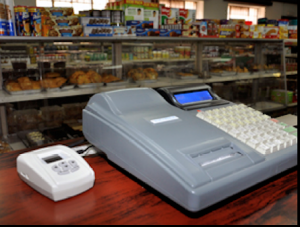Effective tax mobilisation is central to delivering on the promise of the Nana Akuffo Addo’s administration. The challenge however is the limited capacity of the Ghana Revenue Authority (GRA) to monitor and verify taxable transactions, leading to inadequate revenue collection.
With the removal some taxes items and reductions in the rates of others, as announced in the 2017 budget, the need to improve on tax compliance more imperative than ever.
This write up draws on the experience of Rwanda to explore how the GRA could leverage technology to ease tax administration and to increase tax compliance further. As part of their tax reforms, the Rwanda Revenue Authority (RRA) rolled out Electronic Billing Machines (EBMs) in 2013.
EBMs are portable devices, which record and store details of transactions in real time. A number of enterprises in Ghana are already using one form or the other of EBMs. Under the Rwandan regime, however, all VAT-registered businesses are to procure from approved vendors, have them activated by the RRA and to issue certified EBM receipts, with the sales data transmitted directly to the RRA database.

The adoption of EBMs by enterprises in Rwanda was very rapid. Within a year, four in five qualified businesses in Rwanda activated at least one EBM and VAT receipts went up by 5%.
However, a team of International Growth Centre (IGC) researchers, who worked closely with the RRA, found substantial differences in both adoption and impact of the EBMs across the economic sectors of Rwanda. They also found that certified EBMs receipts were not issued consistently across board.
The Rwandan experience suggests the rollout of certified EBMs in Ghana has the potential to ease tax administration and to deter tax evasion. However, its success depends on strong stakeholder engagement and robust legal frame work, reinforced with complementary initiatives to discourage non-compliance.
Early stakeholder buy-in is vital
The business community is likely to have apprehensions about the rollout of the EBMs in Ghana. Steps must therefore be taken to address their concerns and to secure an early buy-in. For instance, careful deliberation is needed to determine who bears the upfront cost of the EBMs? A key aspect of the Rwandan regime is that businesses, not the RRA, paid for the procurement, installation and activation of the EBMs. In the Ghanaian context, a different approach may be more appropriate.
Clear guidelines are needed
The introduction of the EBMs must also be backed by appropriate legislation and associated guidelines; that is self-evident. Whichever form it takes, the exemptions, the time lines, and the consequences of non-compliance must be clearly spelt out.
In addition, the guidelines must be clear on what businesses are supposed to do during and after either a power outage or a technical malfunction of the EBMs. Otherwise, system outages and malfunctioning may become loopholes for non-compliance. One possibility, in the event of a malfunction, is to ask the affected business to notify the GRA as soon as possible and to have the EBM repaired within 48 hours. During that period of malfunction, the user must revert to issuing hand-written VAT receipts. Once the EBM is fixed, the sales recorded in these hand-written receipts must be entered into the EBM, and stored together with the EBM receipts. A similar approach maybe followed in the event of a power failure.
Perhaps, most important, the penalty of non-compliance must be severe and credible. Without this, the rollout may be undermined.
Prioritise the highest tax impact sectors
The rollout of EBMs is going to demand additional capacity and resources from both businesses and the GRA. One approach is to rollout the EMBs in phases, focusing first on sectors where the potential benefits are deemed highest. Roughly, the highest impact sectors are likely to be those where VAT compliance is comparatively low.
Increasing compliance requires monitoring and enforceable penalties for non-compliance
The Rwandan experience shows that a successful rollout of EBMs does not necessarily translate into widespread usage: only one-fifth of shoppers were issued EBM receipts without request. When requested, two in three customers were issued EBM receipts. The motive for non-usage is similar to the practice of not issuing VAT receipts in Ghana.
Using consumer side interventions such as an “EMB Receipt lottery” can increase demand for EBM receipts and hence compliance. Perhaps a more effective strategy is to send out ‘mystery shoppers’. The scale of the mystery shopping itself is not particularly crucial but it needs to be targeted and credible.
In sum, we can neither continue to depend on aids nor borrow our way to prosperity. EBMs present an opportunity to strengthen our tax administration and to spread the tax burden more fairly. This opportunity deserves attention from the GRA and support from us all.
Author: James Dzansi
James.Dzansi@gmail.com
Country Economist
International Growth Centre


